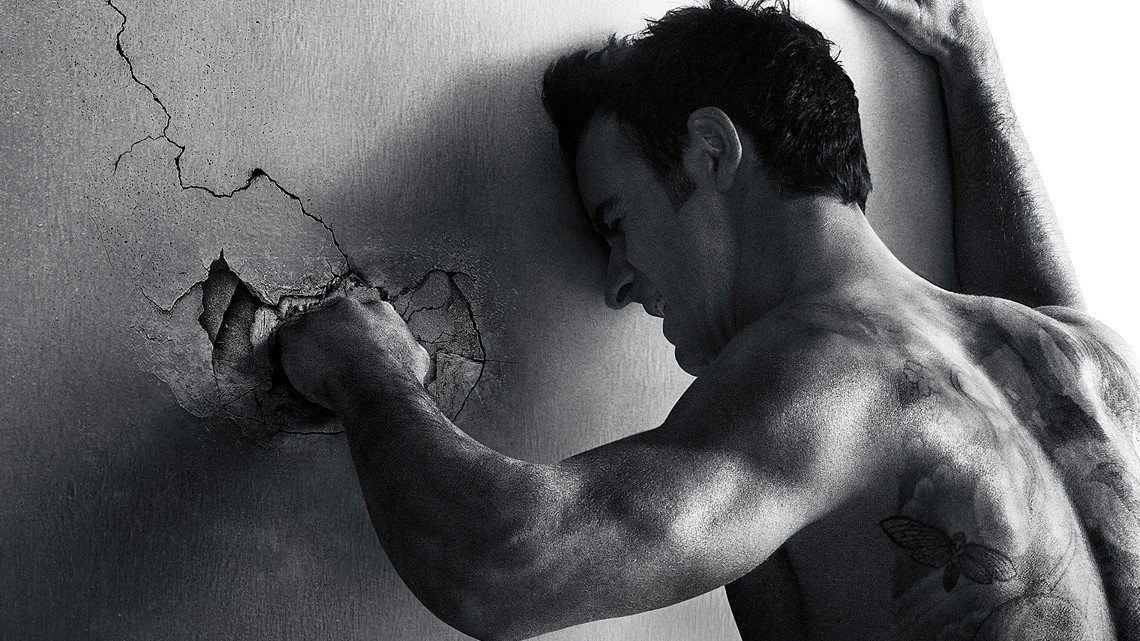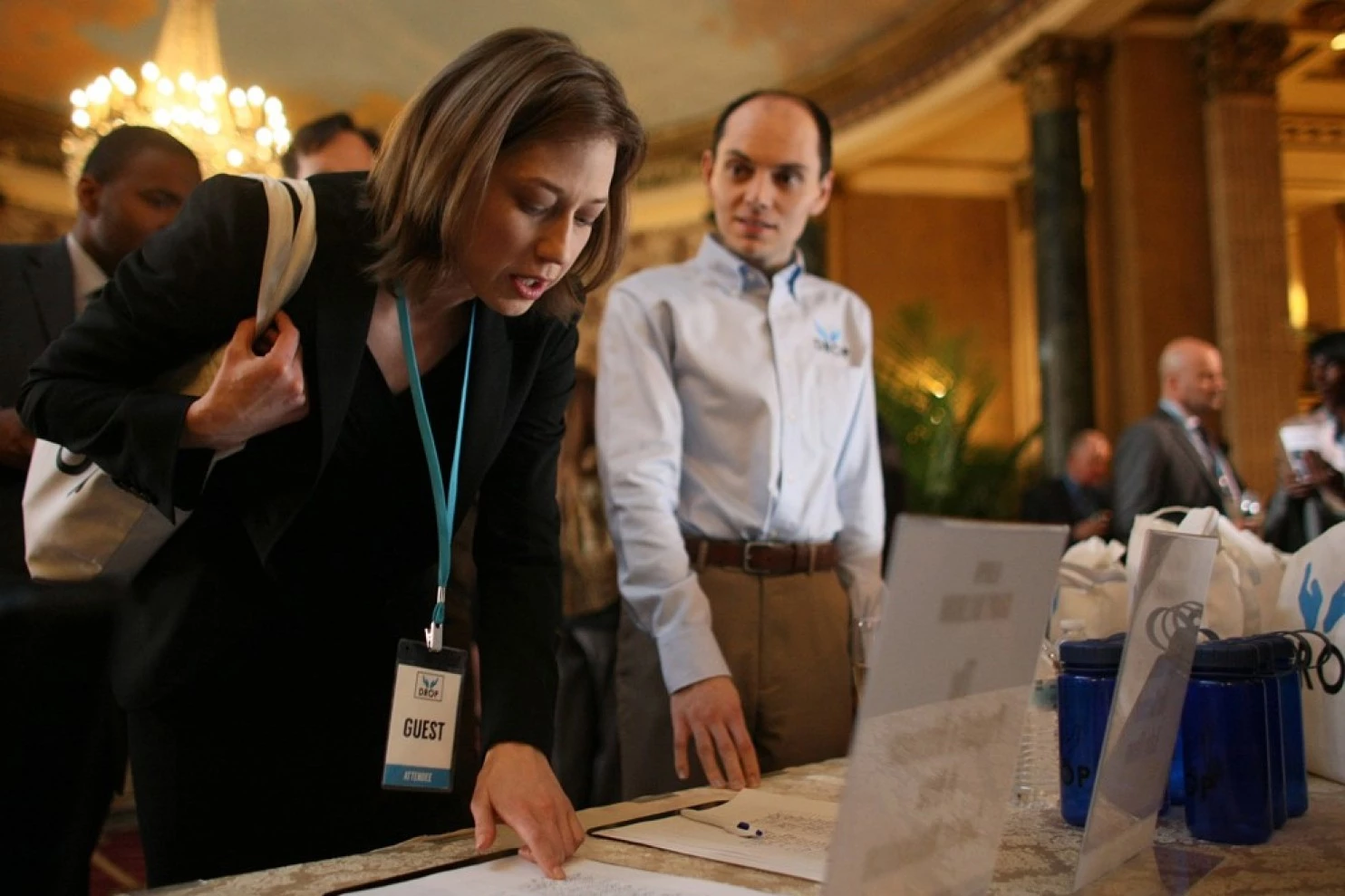The Leftovers Series blog: Episode 6
It seems no mere coincidence that The Leftovers’ strongest material so far has come from episodes that limit themselves to broadly following one character, and one character only. After all, it’s the same formula that served Damon Lindelof and Co. so well on Lost. ‘Guest’ is cut from a similar cloth, illuminating the post-Departure life of Nora Durst, a character already defined in earlier episodes by the total loss of her family on October 14th. Attending a panel talk in New York for the second annual DROP (Departure Related Occupations and Practices) conference, Nora arrives to find her identity stolen by another woman, and the episode takes a more insidious course.
Even in the small interactions glimpsed so far, it’s already apparent that Nora Durst constitutes one of the show’s more promising characters. It certainly helps that Carrie Coon is a more than capable actress, corroborated in the strong chemistry already established between herself and Justin Theroux, a spark lit with only one or two scenes shared between them so far. Her performance is a relatively subdued one, broken only by the bursts of irreverent humour that come to characterise Nora’s approach to grief. It proves refreshing – she voices her pessimistic, dissenting opinions where other characters seek to sublimate them.
The writers, as ever, delight in keeping us ignorant to any bigger picture thinking.
Though that’s not to say that Nora is anymore well adjusted than the other inhabitants of Mapleton. Her family home is preserved as a museum and monument to her loss, unchanged since the day of the Sudden Departure, right down to the cereal and chocolate milk that her children liked. In a sense, Nora ceased to exist that day too. Certainly, the episode’s cold opening (an area in which this show always delivers), very explicitly showcases Nora’s continued disconnection from the world around her, as she hires a prostitute to shoot her at point blank range whilst wearing a Kevlar vest. It’s both an expression of Nora’s death wish, and paradoxically, a desperate attempt to feel alive.
Her occupation as worker for the Department of Sudden Departure is similarly disconcerting, exposing a colder, more impersonal facet to the Sudden Departure and the mess it left behind. Bureaucracy has been erected in the tragedy’s wake, epitomised in the seemingly pointless nature of the bereavement questionnaire. The compensation criteria are nonsensical, reading more as a behavioural experiment than anything else. The conference itself displays the stagnancy of everyone’s grief on a larger scale – the foregrounding of ‘Legacies’ (those who lost someone – Nora’s triple legacy status signified by the three small orange dots on her event pass), and the rise of Departure writing and academia speaking to the newly stratified, hierarchical nature of grief.
The shift to Manhattan, New York, also provides an intriguing look at how this loss has been treated in the wider world. What is presented is very much a macrocosm of the problems that face small-town Mapleton, though the tensions here boil over much more visibly. The Guilty Remnant are only one group amongst the many whom congregate outside the conference, from religious groups and prophets of the apocalypse to the conspiracy theorists – like the woman who stole Nora Durst’s identity – who decry what they perceive as the government’s role in the crisis. These small nuggets of information tantalise and frustrate in equal measure, contextualising the Sudden Departure without ever really speaking to its true origins. The writers, as ever, delight in keeping us ignorant to any bigger picture thinking.
Instead, the show turns to its more human concerns, and the coping mechanisms that people fall back on in times of great loss. Invited back to the hospitality suite by a group attending the conference, Nora proceeds to drink and take drugs in one of The Leftover’s already familiar party scenes. These tend to be a little heavy-handed in their portrayal of libidinal release and taboo, but the surprising revelation of the hedonists’ role at the conference serves to offset this a little. Representatives of the company that make the ‘Loved Ones’ bereavement dolls, they have little time for the slow deaths of those around him. One man, Marcus, blue-eyes and blond hair with all the over-exuberance of a snake oil salesman, couches it in the pragmatic terms of supply and demand – a service rendered for people in need of closure. It stinks of a guilty conscience all the same, another coping mechanism for yet another lost person, with the unnerving visual of his very own ‘Loved Ones’ replica overtly driving the point home. When Nora kisses the facsimile, what we are really witnessing is one non-entity kissing another.
That Nora comes full circle and eventually passes through her grief is of vital importance – a paradigmic shift for the show overall, reinforced by the episode’s eventual return to the wider narrative with the appearance of Holy Wayne. His role in proceedings does qualify Nora’s newfound acceptance somewhat, though the trajectory of her journey feels no less well earned for it. It is this feeling of uneasiness and of things left unresolved that fuels the show’s more mysterious storylines, combined here with a profoundly personal story to create an entirely sublime episode.


Comments